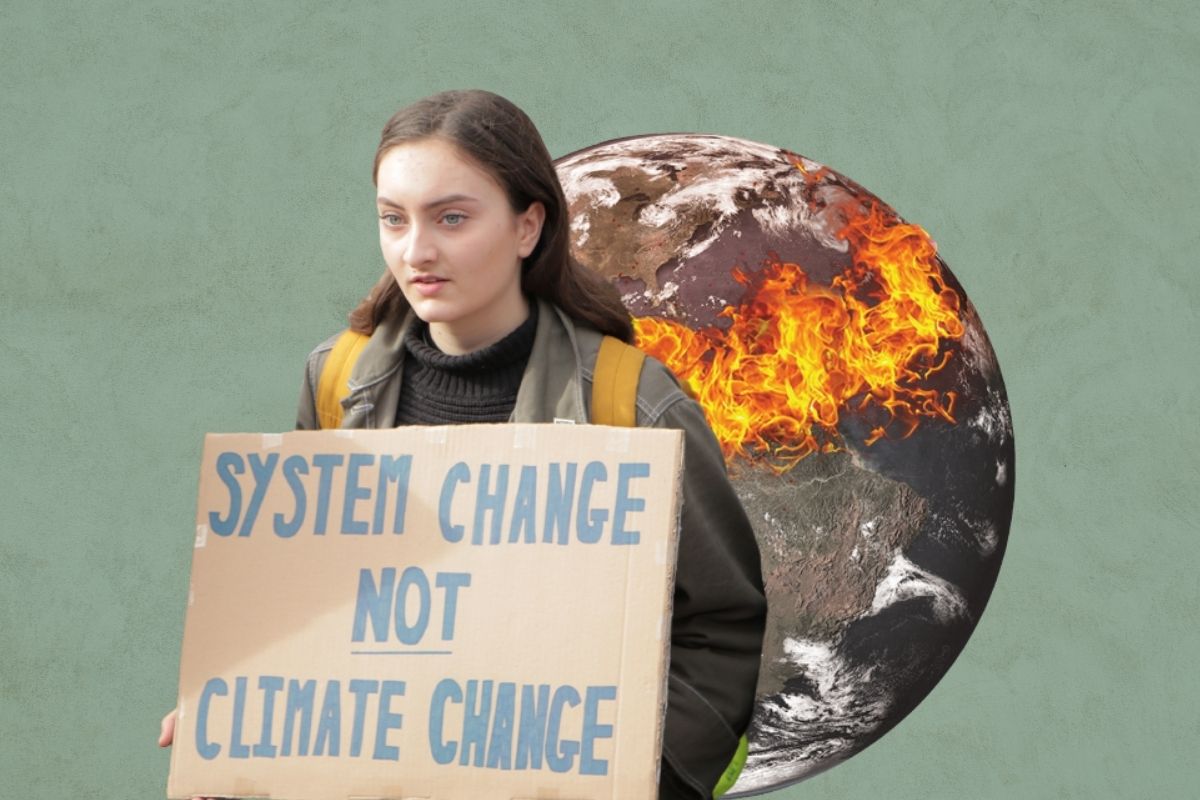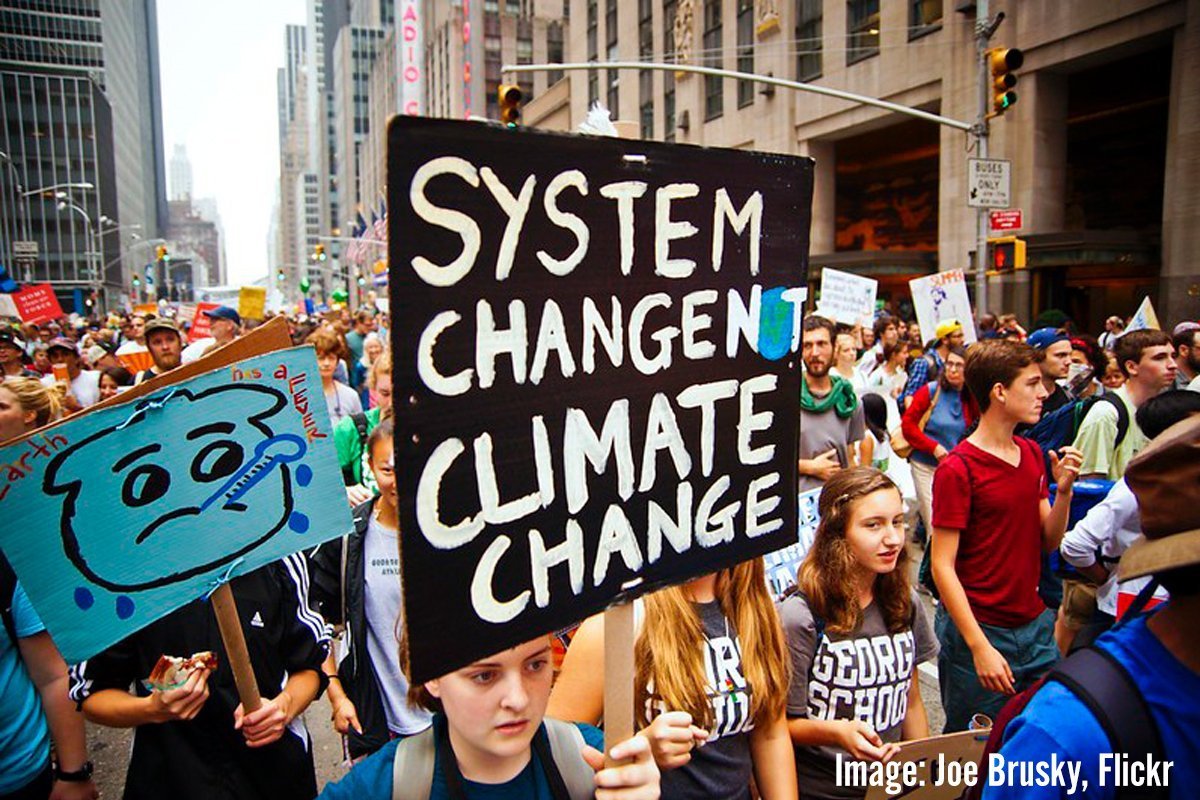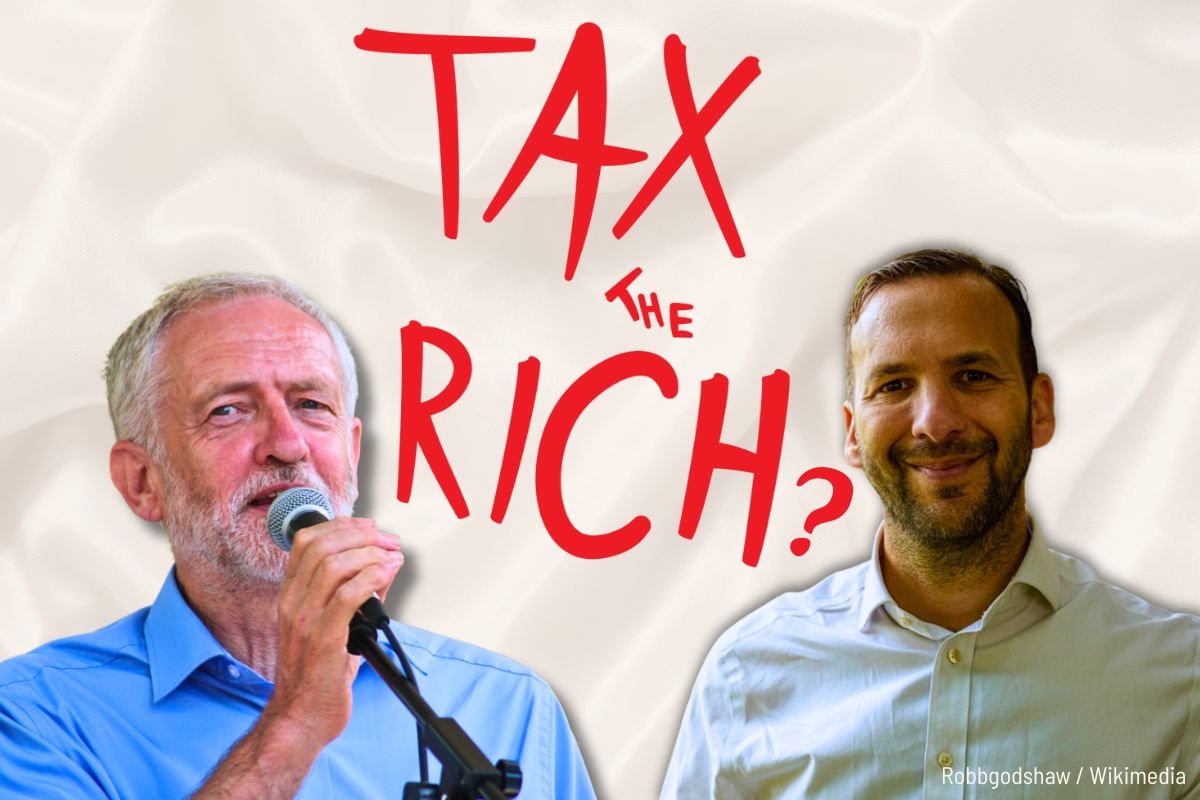Last Saturday, activists from Animal Rebellion – an offshoot organisation of Extinction Rebellion – took to the streets in central London, demanding an end to a “food system built on the exploitation of animals”.
Protestors targeted high-end stores such as Selfridges and Fortnum & Mason, pouring dairy products over the floors and displays, before shutting down roads with a sit-in demonstration on Westminster Bridge.
Animal Rebellion (AR) deploys non-violent civil disobedience to pressure the government to support an “immediate transition to a plant-based food system” and to commit to “wildlife restoration and carbon drawdown”.
Last month, for example, seven dairy distribution facilities were targeted, causing disruption and delays to milk and dairy supply chains.
Campaign organisers cite a 2019 Harvard University report on UK farmland and food production, which points out the harmful effects of meat and dairy production on the environment. The report suggests that, in order to undo this, there should be a shift towards plant-based diets.
Similarly, campaigners from the Just Stop Oil (JSO) coalition blocked traffic in various London locations over the weekend, calling on the government to halt the exploration and production of fossil fuels in the UK.
These protests raise key questions: Who currently runs and controls the food and energy industries? Who is responsible for the destruction of the environment? And what are the best methods for stopping this?
Production for profit

Animal Rebellion and Just Stop Oil correctly point out the devastating effects of the climate crisis, highlighting examples such as the unprecedented droughts across Europe this summer, and the recent immense flooding in Pakistan.
These groups fail to link this destruction with the capitalist system itself, however.
Similarly, campaigners focus solely on the meat and dairy industry or the energy sector, respectively, without explaining how this production takes place.
Under capitalism, all production is carried out to generate profits. Whether or not this damages the environment or hurts animals is at the bottom of the capitalists’ list of considerations when investing.
The energy monopolies and big food producers are not inherently obsessed with oil and meat. Rather, they are out to maximise their profits. And if this means locking society into a future of fossil fuels and animal-based diets, then so be it.
This is not confined to the production of food or energy, but is a general feature of the capitalist system as a whole. Under capitalism, it is the bosses and investors – driven by profit – who decide what is produced, and how this is produced.
The rest of us, meanwhile, have no control over our lives or our surroundings. We are just a market for the capitalists’ commodities; our planet and its various species just resources to be exploited for the bosses’ profits.
Capitalist interests
By failing to link the question of the climate crisis and the food sector to the overthrow of capitalism, the conclusions drawn by well-meaning groups such as AR and JSO are ultimately utopian.
Their main aim is essentially to pressure the government to make more environmentally-friendly policy decisions.
The government is not a neutral arbiter, however. Rather, it acts as a tool for the capitalist class, to manage their affairs and defend their interests.
This is clearly the case for the Tories and Starmer’s Labour. But it also extends to environmental institutions that are a part of the capitalist state, such as DEFRA and the Environment Agency.
The latter, for example, far from protecting the environment, have overseen privatised water companies pumping huge quantities of sewage into our seas and rivers, all for the sake of the bosses’ profits.
To try and convince these establishment bodies to act in any other way is like attempting to convince a shark to switch to a plant-based diet.
Tactics and repression

The means by which AR and JSO seek to pressure the government is through campaigns of small-scale direct actions.
This includes stunts such as spraying the gates and walls outside Parliament with white paint; emptying milk bottles onto the floor of Harrods and other posh shops in London; and blocking roads.
These tactics emulate the pattern of protests conducted in recent years by similar groups such as Extinction Rebellion and Insulate Britain.
Rather than inspiring the masses to move into action, or convincing the government, however, these methods have consistently been greeted by waves of arrests and repression from the state.
This was the case with the latest round of protests, with dozens of activists arrested by the police on the back of last weekend’s various actions.
Workers’ power
The solution to the climate crisis does not lie in isolated stunts, nor with attempts to convince the capitalist class and its political representatives.
Instead of these individual ‘direct’ actions, which merely attempt to reform the system, what is needed is mass action with revolutionary aims: class struggle around bold socialist demands.
Over the past year, we have seen a tremendous upswing in the labour movement, with workers mobilising and striking across Britain and around the world.
Not only does this include workers on the railways, on the buses, at ports, and in the postal service, who have shut down transport and industry, but also workers in the fossil fuel sector, with wildcat action seen on North Sea oil and gas rigs.
This demonstrates who really holds the power in society, and where the potential for real change comes from. Not a force on earth can stop the working class once it is organised and mobilised.
Socialist solution

The capitalists and their representatives cannot be trusted to tackle the climate catastrophe. At the end of the day, it is they and their system who are responsible for killing the planet.
Instead, workers and youth must fight to expropriate the profits of the billionaires, and to nationalise the key levels of the economy.
On this basis, production could be rationally and democratically planned, according to the needs of society and the environment, rather than being left to the anarchic capitalist system, with its insatiable thirst for ever-increasing profits.
The resources and technology exist to produce life’s necessities – such as food and energy – in a sustainable manner. But this can only happen if we replace private ownership and the profit motive with a socialist plan of production.
In turn, questions such as what should be produced and what diets should be encouraged can only be answered by putting power and control in the hands of ordinary people, rather than with shareholders and investors.
This can only be achieved by uniting the struggles of the working class to overthrow capitalism and transform society along socialist lines.
Only then can we prevent the destruction of the environment, and live harmoniously with nature and the world around us.






